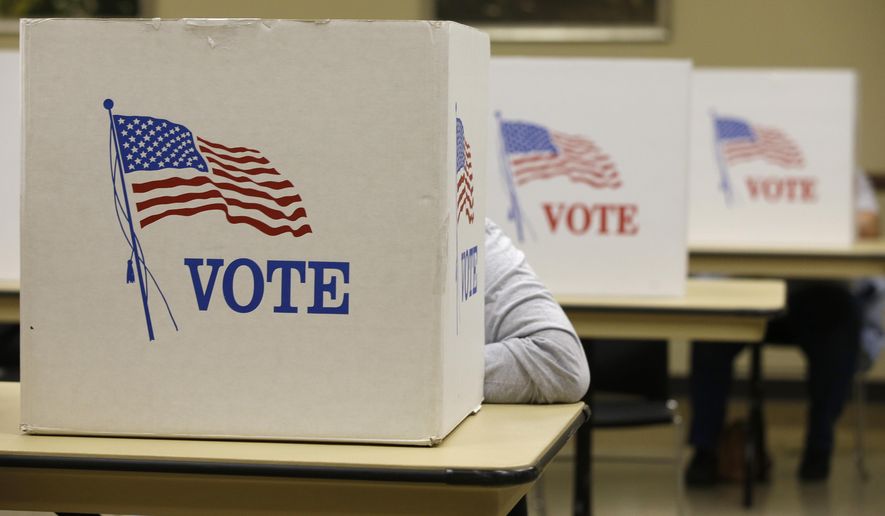One year from now, the first-in-the-nation Iowa Caucuses will take place, and I’ll join my fellow Iowans in casting the first official ballots in the 2016 race for the White House.
While many elites like to scoff at my home state having such prominence in the process, the truth contradicts their sneering condescension packaged as “conventional wisdom” (as it usually does). In fact, Iowa has picked the last four general election winners, and the Republicans have never nominated someone who didn’t finish in the top three in Iowa (John McCain and Fred Thompson virtually tied for third in 2008).
Therefore, you must be one of the three tickets punched out of Iowa if you have any chance of giving the acceptance speech at the 2016 Republican convention in Cleveland a mere 17 months from now. That’s the power of flyover country, and that’s easier said than done this go around. This could be the strongest GOP field of challengers in recent memory, which means how each candidate mitigates their weaknesses could go a long way in determining who survives to fight another day in New Hampshire, South Carolina, and beyond.
Here’s what’s standing in the way of each of the top dozen candidates having their ticket punched next February (in alphabetical order):
Jeb Bush: He needs to make sure he’s the only pure establishment candidate in the race on caucus night. If he is, he’ll receive the 18 percent to 25 percent of the caucus electorate that is typically the party establishment vote, which should be good enough to finish somewhere in the top three. If he’s not and that vote splinters, he’s in trouble.
Ben Carson: With a competent campaign he will bring new voters to the process, but to finish in the top three he’ll have to survive a thorough vetting from enough of the ideologically driven conservatives who typically vote.
Chris Christie: Even if the ongoing investigation from the U.S. Attorney’s Office is nothing other than partisan grandstanding, the headlines that come of it could be enough to convince nervous party pooh-bahs he’s damaged goods.
Ted Cruz: No one connects better with conservatives while on the stage or in front of the camera, but will he connect with them person-to-person? That’s what it takes to be successful in Iowa.
Mike Huckabee: Since there’s much stiffer competition for his evangelical base this time and nostalgia only carries you so far, he needs an issue/identity that makes his campaign more than just Huckabee ’08 v2.0.
Bobby Jindal: Perhaps nobody is doing better presidential messaging right now, but he’s still out-of-sight/out-of-mind to many conservatives due to the strength of the field. To overcome that, he’s probably going to have to take a page out of Rick Santorum’s 2012 playbook and practically live in Iowa for the next year.
Rand Paul: He’s the only candidate who faces a three-front war. He’s being challenged for his own base by Cruz. Yet his base isn’t big enough to finish in the top three on its own even without that challenge, so he also needs to make inroads with evangelicals – who have several easier-fitting options to choose from. Then last week, in a sign the GOP establishment is still not done attempting to eradicate the liberty base in Iowa, the local media publicly targeted former state party chair A.J. Spiker, who’s now part of Team Rand’s inner circle. Navigating that minefield will be extraordinarily difficult.
Rick Perry: In 2012 he tried to run as the alpha male conservatives coveted, and it didn’t work. Last year he re-made his image and while conservatives liked that Perry better, he was out-flanked by his fellow Texan Cruz. Now he’s apparently going to try a more moderate persona according to recent reports, which would be his third different identity. Perry’s biggest obstacle appears to be himself.
Marco Rubio: He needs to convince at least some conservatives there’s more to him than the “gang of 8” amnesty fiasco, and he needs to convince at least some in the establishment fellow Floridian Jeb is too damaged to be their champion.
Rick Santorum: Even though he’s the reigning caucus champ, he has to win over conservatives – including much of his victorious organization – all over again.
Donald Trump: Iowans like him, and it’s almost impossible not to. He’s a star and a household name worldwide for a reason. However, if he wants to be taken seriously he’s going to have to do the same legwork on the ground every other successful candidate (regardless of party) has had to do in Iowa. Voters in this state tend to reward the candidates who campaign consistently, not the ones who attempt to pull it out at the end with late-game heroics.
Scott Walker: In some respects his biggest strength is his biggest weakness. Since he’s the one guy on this list who actually has dismantled one of the pillars of the Left, that raises expectations for him across-the-board. Conservatives now expect him to show a similar boldness on issues of national significance he’d face as president — amnesty, Common Core, life, marriage, etc. If he doesn’t (and so far his answers on these issues haven’t been all that inspiring) conservatives will realize it’s because he’s not really with us on those issues. If Walker passes this test he becomes the next transformational leader in the party. If he doesn’t he’s the Tim Pawlenty of 2016.
(Steve Deace is a nationally syndicated talk show host and also the author of the new book “Rules for Patriots: How Conservatives Can Win Again.” You can “like” him on Facebook or follow him on Twitter @SteveDeaceShow.)




Please read our comment policy before commenting.